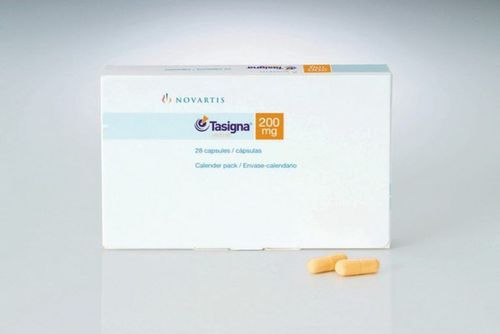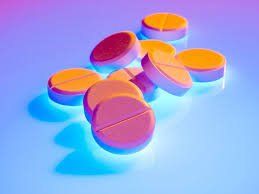This is an automatically translated article.
Calan medicine contains Verapamil, an active ingredient in the calcium channel blocker group. The effects of Calan include lowering blood pressure, reducing chest pain, or preventing arrhythmias. So what principles should be followed when using Calan?
1. What are the effects of Calan?
Calan contains Verapamil, used alone or in combination with other drugs to treat arrhythmias, angina or hypertension.
High blood pressure increases the work load on the heart and arteries, so if blood pressure is high for a long time, it will lead to the heart and arteries not working properly. The result is damage to the blood vessels of the brain, heart, and kidneys, leading to complications such as stroke, heart failure, or kidney failure. In addition, high blood pressure can also increase the risk of a heart attack. All of the above problems can be limited if blood pressure is effectively controlled.
Verapamil in Calan is an active calcium channel blocker. Calan affects the movement of calcium ions into the cells of the heart and vascular smooth muscle. The result is dilation of blood vessels, stimulating heart muscle contractions to increase blood and oxygen supply to the heart while reducing the organ's workload.
Note that Calan is only used according to a doctor's prescription.
2. Things to note before taking Calan
When deciding to use any drug, the risks must be weighed against the benefits it offers and Calan is no exception.
For Calan, the patient should consider the following:
Allergies: The patient should tell the doctor if there is a history of unusual or allergic reactions when using Verapamil or any other drug. any other drug. Also, tell your doctor about any other allergies, including foods, dyes, preservatives, or animals; Use of Calan in Children: Studies on the use of Verapamil in this population have not been performed, so safety and efficacy have not been established; Use of Calan for the elderly: The use of the drug for this subject is not much different from that of young patients. However, it should be noted that elderly patients are at higher risk of heart, liver or kidney problems, so the dose of Verapamil should be adjusted accordingly; Nursing Mothers: There are no adequate studies on the use of Calan in this population, so the risk to the nursing infant has not been determined. Therefore, it is important to weigh the potential benefits against the possible risks before taking Calan during breast-feeding. Certain other medical problems may affect the use of Calan. Patients should be sure to inform their treating physician of the following:
Congestive heart failure; Myopathy, such as Duchenne muscular dystrophy, myasthenia gravis; Pulmonary edema : Care should be taken as Calan may worsen pulmonary edema; Conduction block in the heart; Other heart problems, such as Wolff-Parkinson-White syndrome, Lown-Ganong-Levine syndrome; Low blood pressure ; Sinus node insufficiency syndrome; Problems with kidney function or liver function: Calan should be used with caution because Verapamil is eliminated from the body more slowly.
3. How to use Calan
In addition to using Calan, the treatment of high blood pressure requires patients to control their weight and change their diet accordingly, especially restricting foods containing a lot of salt (Sodium Chloride). The doctor will give detailed instructions on the appropriate treatment for each patient.
Many hypertensive patients do not show any symptoms and in fact many still feel normal. This warns that even if you feel healthy, hypertensive patients still need to take Calan exactly as directed and follow the doctor's follow-up schedule.
Calan does not completely cure hypertension, but it will help patients control the disease as optimally as possible. Uncontrolled high blood pressure can cause serious problems such as heart failure, blood vessel disease, stroke or kidney disease.
Dosage of Calan will be different for each specific case, so patients need to follow the doctor's prescription or the manufacturer's instructions. The recommended dose of Calan for patients depends on the strength and dosage form of the drug. In addition, the number of times per day, the time allowed between doses, and the length of time Calan should be taken depend on the specific medical condition.
Dosage of Calan medicine to treat angina:
Calan in tablet form: Adults: 80-120mg x 3 times/day; Children: Dosage determined by a specialist; Calan is in the form of extended-release tablets: Adults: The starting dose is 180mg x 1 time/day orally at bedtime; Children: Use Calan as directed by your doctor. Dosage of Calan to treat heart rhythm problems:
For Calam in tablet form: Adults: 240-480mg/day, divided into 3-4 oral doses; Children: Take Calan as directed by a specialist. Dosage of Calan to treat hypertension:
Calan tablets: Adults: The starting dose is 80mg x 3 times/day. Then adjust the dose if necessary; Children: Dosage as directed by the doctor; Calan extended-release capsules: Adults: Initially 200mg x 1 time taken daily at bedtime. Then adjust the dose according to the clinical response; Children: The use and dosage of Calan is determined by the doctor; Calan is in the form of extended-release tablets: Adults: 180mg, taken once a day in the morning; Calan is a 24-hour extended-release tablet: Adults: The initial dose is 180mg, taken once daily at bedtime.
4. Side effects of the drug Calan
In addition to the therapeutic effects, Calan may cause some unwanted effects. Although not all Calan side effects are possible, when they do occur, patients need appropriate medical attention.
Contact a doctor immediately if a patient taking Calan develops any of the following side effects:
Lips and fingernails turn blue; Blurred vision; feeling of heat, numbness, stinging, or tingling; Chest pain; Psychological panic; Cough, sometimes with pink sputum; Shortness of breath, rapid breathing, wheezing; Dizziness, fainting, or lightheadedness when changing positions suddenly; Increased sweating; Pale mucous membranes; slow or irregular heartbeat; Sore throat; Swollen feet and ankles; unusual tiredness or weakness; Chills, cold sweats; Redness of the face, neck, arms, and sometimes even upper chest Some side effects of Calan can occur without medical attention for the most part. These side effects may go away during treatment as the patient's body adapts to Calan. In addition, the treating physician can instruct the patient on how to recognize, correct or prevent these side effects:
Constipation; Headache; Ợ Sour, belching, heartburn Difficulty moving; Indigestion eating; Joint pain, muscle pain or cramps; Stiff muscle pain; Nausea; Skin rash; Stomach upset or epigastric pain; Difficulty sleeping or unusual sleepiness, feeling lethargic, tired, or sluggish; Joint swelling. Calan contains Verapamil, an active ingredient in a group of calcium channel blockers. The effects of Calan include lowering blood pressure, reducing chest pain, or preventing cardiac arrhythmias. To ensure the effectiveness of treatment and avoid unwanted side effects, patients need to strictly follow the instructions of the doctor, professional pharmacist.
Follow Vinmec International General Hospital website to get more health, nutrition and beauty information to protect the health of yourself and your loved ones in your family.
Please dial HOTLINE for more information or register for an appointment HERE. Download MyVinmec app to make appointments faster and to manage your bookings easily.
Reference source: .drugs.com













